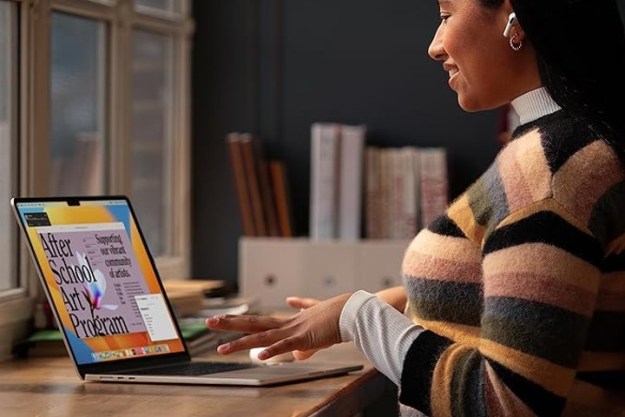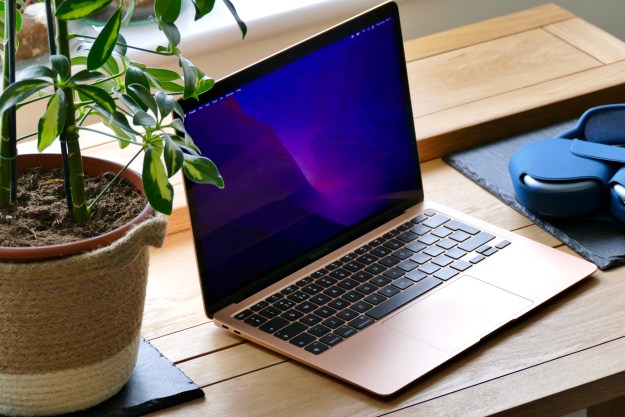
Before Google’s press event came to a close on Wednesday, my colleagues had ordered, in total, five Chromecast dongles. Well dang, I need to get in on this, I thought. I went through the various clicks, entered my updated credit card info into Google Wallet. And then … I closed the browser.
Why the hell did I do that? The question still haunts me, as I write this, for reasons my anti-consumerist side thinks deserve professional psychiatric attention. Chromecast is a damn good deal, after all – and it was an even better deal in those first few hours after its debut. For $35, I could have gotten a device that streams YouTube, Netflix, and range of other Web content, directly to my HDTV. At that price, it’s a no-brainer. To sweeten the deal further, Google briefly offered three months of free Netflix. Seeing as I already pay $8.95 per month for a Netflix subscription, the Chromecast would have cost me a net total of $8.15. I spent more on a Chicken McNugget meal last night that made me feel like Ronald McDonald took a dump in my stomach.
Okay, you’re still asking, why didn’t you buy a Chromecast? The fake answer is, I don’t really need one. Between my Xbox 360 and my Internet-connected BluRay player, I already have more than enough devices to connect my TV to the primary apps currently offered on the Chromecast. Is typing on the Xbox a giant hassle? Sure, but I like to think it builds patience and character. (It doesn’t – I usually end up screaming at the television and throwing the controller across the room, but I still like to think that.) And besides, it’s always better to be frugal.
The prospect of having full, easy Web surfing capabilities on literally every screen in my house makes me nervous.
No – the real answer is, the prospect of having full, easy Web surfing capabilities on literally every screen in my house makes me nervous.
Like many of you, I spend much of my daylight hours online. The Web provides both my livelihood and my primary connection to the outside world. Because of this, any idle time I have inevitably leads me back to a computer screen, mindlessly clicking my life away – or, more often, working.
To be honest, I actually like clicking my life away, and I really like working. But my loved ones see things differently. “You’ll get burnt out,” they said. “Why don’t you get a hobby?” asked another. “You’re kind of a jerk,” said a few of them – not related to my Internet addiction, but it still made me feel bad. The situation grew so dire that my fiancé actually bought me the Xbox 360 just to keep me off the Web – and you know you have a problem when playing video games is a solution. I even considered attending one of those $1,400-a-weekend Digital Detox camps before I remembered my vow to never get scammed by yuppies.
So out comes the Google Chromecast, a device that brings much of the Web experience to the largest screen in my house. Not only that, but reports indicate that Google may eventually offer cable channel bundles through an Internet connection – meaning the Chromecast may very well be a cord cutter’s dream device. Seeing as my local cable/Internet monopoly hasn’t bothered to run cable TV service to my freakin’ house yet, the Chromecast is only that much more enticing. I mean, seriously – how awesome would real Internet TV be?
And yet, I am determined to maintain self-control here. Don’t get me wrong – this isn’t some Luddite ideal. I don’t actually think the Internet is bad for you in some philosophical or medical way, nor do I have any wild fantasies about going off the grid. Rather, I see value in keeping the gadgets that have come to dominate my life separate. My computer is for work and a little bit of casual Web browsing. My television is for watching some Netflix and playing Borderlands 2. My iPhone is for keeping me from dying of boredom while standing in lines. It’s balanced, compartmentalized, and healthy.
There will come a day when all the devices in our homes, from our televisions and computers to our toasters and light bulbs, will have an Internet connection. (For some of you rich bastards, that day has already come.) And that’s fine. But for now, I am in no rush to expedite the convergence. Instead, I’m just going to take a deep breath, and maintain the blissful equilibrium I’ve established in my life. The Chromecast will just have to … ah, dammit, I just bought one.
Editors' Recommendations
- 4 CPUs you should buy instead of the Intel Core i9-13900K
- How to change theme colors in Google Slides
- How to delete a file from Google Drive on desktop and mobile
- The best resume templates for Google Docs
- 5 web browsers you should use instead of Google Chrome or Edge


